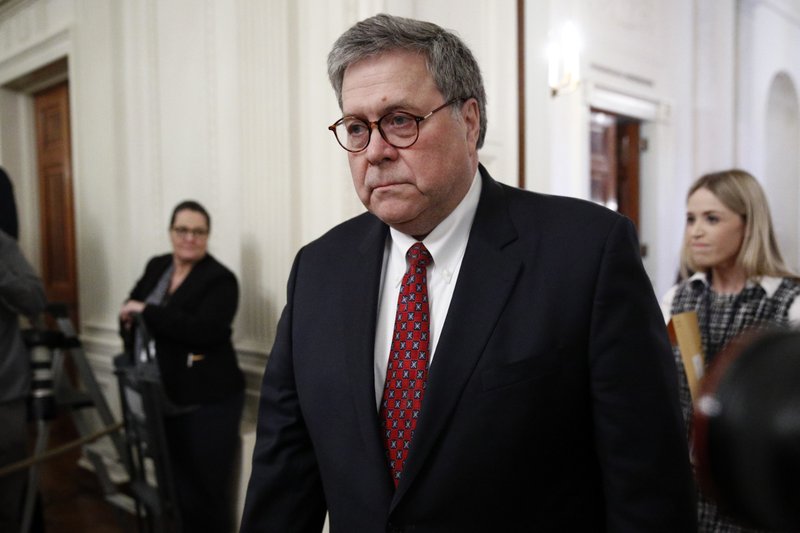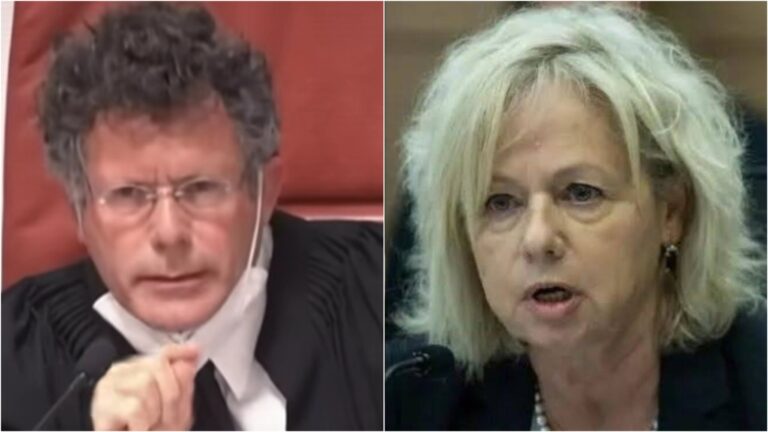Congress is taking a first step toward addressing errors made by the FBI during its investigation of the Trump campaign and Russia, setting a House vote Wednesday on legislation that would impose new restrictions on the federal government’s surveillance tools.
The measure is a compromise that reflects angst in both parties about the way the surveillance powers have been used but also a reluctance to strip those powers entirely from the government’s arsenal. The bill would renew several provisions the FBI sees as vital to fighting terrorism even as it aims to ensure stricter oversight of how the bureau conducts surveillance.
It remains unclear whether the Senate, after House action, would go along and send the bill to President Donald Trump, who has long been critical of intelligence agencies. House Democrats posted the text of a bill online before the floor vote Wednesday. Lawmakers leave town at week’s end and the existing power expire Sunday.
The bill takes aim at some of the missteps the Justice Department has acknowledged making during the Russia investigation. Applications under the Foreign Intelligence Surveillance Act to eavesdrop on a former Trump campaign aide were riddled with omissions and missteps, according to an inspector general report.
The measure would require that officers responsible for FISA applications certify that the department has been advised of any information that could undercut or contradict the premise of the surveillance. In the Russia investigation, some of the information the FBI omitted from its applications cut against the idea that former Trump adviser Carter Page was a Russian agent, the watchdog found.
Page has denied that and was never accused of wrongdoing.
The bill also would institute criminal penalties and other sanctions for making false statements to the secretive Foreign Intelligence Surveillance Court, which issues warrants to the FBI to eavesdrop on people it has probable cause to believe are agents of a foreign power. It would require the attorney general to approve in writing of an investigation if the target of the surveillance is a federal candidate or official.
Attorney General William Barr was involved in the negotiations with the White House and Congress, and he said Wednesday that he supports the bill.
“It is of the utmost important that the Department’s attorneys and investigators always work in a manner consistent with the highest professional standards, and this overall package will help ensure the integrity of the FISA process and protect against future abuses going forward,” Barr said.
Both Republicans and Democrats in the House want to ensure that civil liberties are not overwhelmed by the tools used to thwart terrorism and other crimes. The bill follows negotiations between Democrats and House Republican leader Kevin McCarthy of California, according to an aide to House Speaker Nancy Pelosi, D-Calif., and another person familiar with the talks. They were not authorized to publicly discuss the private negotiations and spoke on condition of anonymity.
In the Senate, Majority Leader Mitch McConnell, R-Ky., has supported renewing the tools. His office did not have immediate comment on the draft released Tuesday by the House.
Trump has been scornful of the country’s intelligence apparatus, particularly over its assessment that Russia interfered in the last presidential election with the goal of getting him elected. Trump, citing surveillance errors from the Russia investigation, told Republicans last week that he wouldn’t sign a bill unless it incorporated reforms.
Lawmakers worked to incorporate the proposed changes into legislation that would renew three expiring provisions, including one that permits the FBI to obtain court orders to collect business records on subjects in national security investigations.
Barr had urged Congress to quickly renew the provisions, which are used by his department to fight terrorism and espionage, with or without immediate changes. McConnell and Pelosi have both been supportive of Barr’s request, but some members of their caucuses slowed the process as they made it clear they wouldn’t support an extension without changes.
The FBI calls the provisions vital in the fight against terrorism and stresses that none are tied to surveillance problems identified by the Justice Department watchdog during its investigation into the Russia probe.
(AP)











